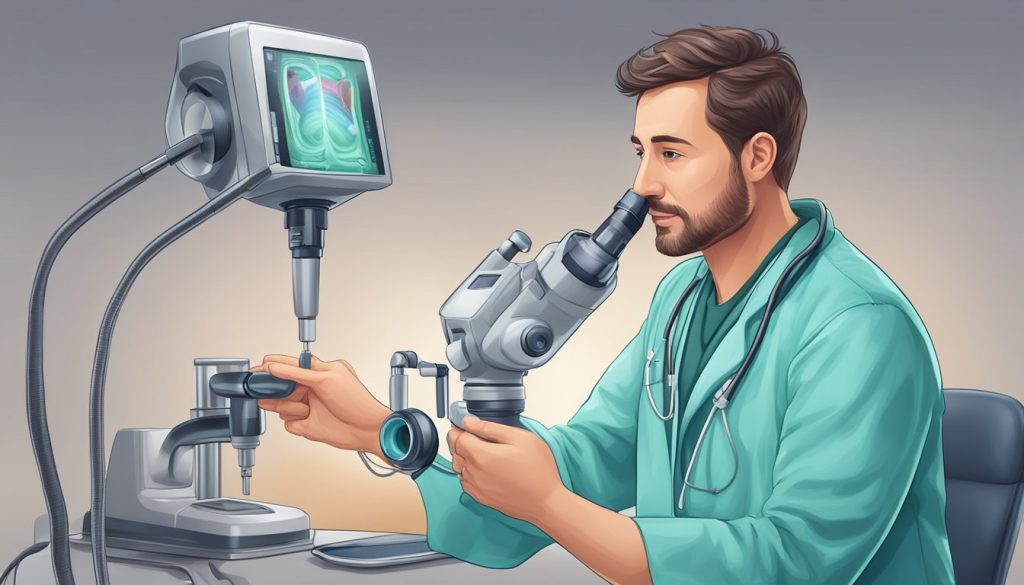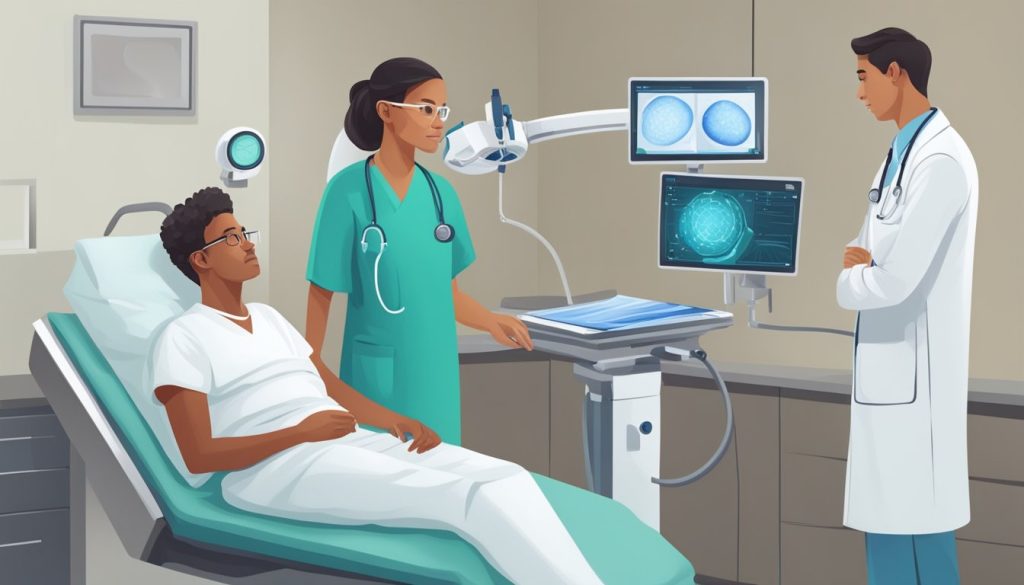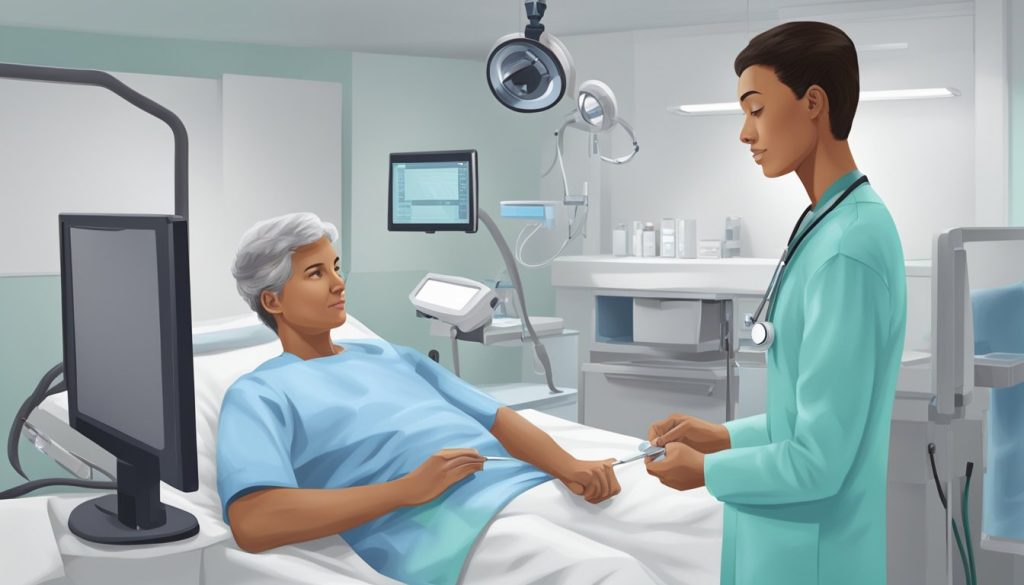Colonoscopies are crucial screening procedures for detecting colorectal cancer and other gastrointestinal issues. For individuals following a carnivore diet, preparing for this important exam requires some unique considerations. Carnivore dieters need to make specific adjustments to their eating habits in the days leading up to a colonoscopy to ensure proper bowel preparation while maintaining their nutritional needs.
The carnivore diet, which consists primarily of animal products, may present challenges when adhering to the traditional clear liquid diet recommended before a colonoscopy. However, with careful planning and consultation with healthcare providers, carnivore dieters can successfully prepare for this screening procedure. Adapting the pre-colonoscopy protocol to accommodate a meat-based diet while ensuring effective colon cleansing is key.
Maintaining optimal nutrition during the preparation period is essential for carnivore dieters. Focusing on easily digestible animal-based broths and incorporating specific supplements can help meet nutritional requirements while following colonoscopy preparation guidelines. By understanding the unique needs of their diet, carnivore adherents can approach this important health screening with confidence and preparedness.
Understanding Colonoscopies

Colonoscopies are essential screening tests for detecting colorectal cancer and other colon abnormalities. They allow doctors to examine the inner lining of the large intestine using a specialized camera.
What Is a Colonoscopy?
A colonoscopy is a medical procedure that examines the entire colon and rectum. It uses a long, flexible tube called a colonoscope, which has a tiny camera attached to its end. This device is inserted through the rectum and guided through the large intestine.
The camera transmits images to a monitor, allowing the doctor to inspect the colon’s lining for any abnormalities. During the procedure, the doctor can also remove polyps or take tissue samples for further testing.
Colonoscopies are typically recommended for adults over 50 as part of routine cancer screening. They may be performed earlier for individuals with a family history of colorectal cancer or other risk factors.
The Importance of Colonoscopies in Cancer Screening
Colonoscopies play a crucial role in the early detection and prevention of colorectal cancer. This screening method can identify precancerous polyps before they develop into cancer, significantly reducing cancer risk.
Regular colonoscopies can detect colorectal cancer in its early stages when it’s most treatable. The American Cancer Society reports that when colorectal cancer is found at an early stage, the 5-year relative survival rate is about 90%.
Colonoscopies are more effective than other screening methods because they allow for both detection and removal of polyps in a single procedure. This unique capability makes colonoscopies a powerful tool in reducing colorectal cancer incidence and mortality rates.
How Colonoscopies Are Performed
Colonoscopies require preparation to ensure a clear view of the colon. Patients follow a special diet and take a bowel prep solution the day before the procedure to empty the colon.
The procedure itself typically takes 30 to 60 minutes. Patients are usually sedated to minimize discomfort. The doctor inserts the colonoscope and carefully examines the colon’s lining as the device is slowly withdrawn.
If polyps are found, they can be removed immediately using specialized tools passed through the colonoscope. Tissue samples may also be taken for biopsy if necessary.
After the procedure, patients are monitored briefly before being discharged. They may experience mild cramping or bloating, which typically resolves quickly. Most people can return to normal activities the following day.
Carnivore Diet Overview

The carnivore diet is a restrictive eating plan focused solely on animal products. It eliminates all plant-based foods, which can have significant implications for digestive health and nutrition.
Principles of the Carnivore Diet
The carnivore diet consists exclusively of animal-derived foods. Meat, fish, eggs, and some dairy products form the core of this dietary approach.
Proponents argue that animal products provide all necessary nutrients for human health. The diet is typically high in protein and fat, with virtually zero carbohydrates.
Adherents consume various meat cuts, organ meats, and animal fats. Some include dairy, while others avoid it. The diet eliminates all fruits, vegetables, grains, legumes, nuts, and seeds.
Potential Impact on Digestive Health
The carnivore diet’s effect on digestive health is a subject of debate. The lack of fiber from plant foods may alter gut bacteria composition and function.
Some report improved digestion and reduced gastrointestinal issues on the diet. Others experience constipation due to the absence of fiber.
The high fat content can be challenging for some people to digest. Adequate hydration becomes crucial to support digestion and prevent constipation.
Long-term effects on gut health remain unclear due to limited research on this extreme dietary approach.
Contrast With Dietary Guidelines
The carnivore diet starkly contrasts with most established dietary guidelines. Traditional recommendations emphasize a balanced intake of various food groups.
Standard guidelines advocate for:
- Fruits and vegetables
- Whole grains
- Lean proteins
- Healthy fats
The carnivore diet eliminates entire food groups, potentially leading to nutrient deficiencies. It lacks essential vitamins and minerals typically obtained from plant foods.
Concerns exist about the diet’s high saturated fat content and its potential impact on heart health. The absence of fiber may affect digestive health and disease prevention.
Possible Health Implications of a Carnivore Diet

A carnivore diet can have significant impacts on various aspects of health. Research has shown mixed effects on weight, cardiovascular health, and certain chronic conditions.
Effects on Weight and Fat Composition
The carnivore diet often leads to rapid weight loss in the short term. This is primarily due to the elimination of carbohydrates and the high protein content.
Protein has a higher thermic effect, meaning the body burns more calories digesting it compared to fats or carbs. This can increase overall calorie expenditure.
Many carnivore dieters report decreased hunger and cravings. The Harvard Carnivore Diet Study found significant weight loss among participants.
However, long-term sustainability of this weight loss remains uncertain. Some individuals may regain weight once returning to a more varied diet.
Influence on Heart Health
The impact of a carnivore diet on heart health is controversial. High intake of saturated fats from animal products may raise LDL cholesterol levels in some individuals.
Elevated LDL cholesterol is a known risk factor for heart disease. However, the diet’s effects on other cardiovascular markers are less clear.
Some proponents argue that eliminating processed carbohydrates may improve heart health markers. But long-term studies on the carnivore diet’s cardiovascular effects are lacking.
Regular monitoring of lipid profiles is crucial for those following this diet, especially those with a history of heart issues.
Risks for Diabetes and Inflammatory Bowel Disease
A carnivore diet may influence blood sugar regulation. The absence of carbohydrates can lead to improved insulin sensitivity in some individuals.
This could potentially benefit those with type 2 diabetes or prediabetes. However, the long-term effects on diabetes management are not well-established.
For inflammatory bowel disease (IBD), the impact is complex. Some individuals report symptom improvement on a carnivore diet.
The elimination of potential trigger foods may reduce gut inflammation for certain people. However, the lack of fiber could negatively affect gut health for others.
More research is needed to fully understand the diet’s impact on diabetes and IBD. Individual responses may vary significantly.
Preparing for a Colonoscopy on a Carnivore Diet
Carnivore dieters face unique challenges when preparing for a colonoscopy. Careful planning and medical guidance are essential to ensure proper bowel cleansing while maintaining nutritional needs.
Consultation With a Gastroenterologist
Scheduling an appointment with a gastroenterologist is crucial for carnivore dieters. The specialist will assess individual health needs and dietary restrictions. They may recommend specific modifications to the standard prep protocol.
Discussing current eating habits and any supplements is important. The doctor can advise on temporary dietary adjustments to ensure effective bowel cleansing. They may suggest incorporating certain clear liquids not typically consumed on a carnivore diet.
Some gastroenterologists might recommend working with a registered dietitian. This can help create a tailored plan that meets both colonoscopy prep requirements and carnivore diet principles.
Bowel Prep Considerations
Bowel prep for carnivore dieters requires careful attention to maintain nutritional balance. Traditional prep diets often include foods not compatible with a carnivore approach.
Clear broths made from bone or meat stock can be suitable alternatives to vegetable-based options. These provide essential electrolytes and minerals during the prep phase.
Carnivore dieters may need to temporarily include clear, sugar-free beverages to stay hydrated. Electrolyte supplements without added carbohydrates can help maintain proper fluid balance.
The bowel cleansing solution might need adjustments. Some preps contain ingredients not typically consumed by carnivore dieters. The gastroenterologist can recommend suitable alternatives if needed.
Timing of the last solid meal before prep may differ for carnivore dieters. Protein-rich foods can take longer to digest, potentially requiring an earlier start to the liquid diet phase.
Risks and Benefits of Colonoscopy for Carnivore Dieters
Colonoscopies play a crucial role in cancer screening for carnivore dieters. The procedure offers important health benefits but may present some unique considerations for those following a meat-based eating plan.
Potential Diet-Related Risks
Carnivore dieters may face challenges during colonoscopy preparation. The low-fiber nature of their diet can lead to constipation, potentially making bowel cleansing more difficult. This could result in inadequate preparation, reducing the effectiveness of the screening.
Prolonged adherence to a carnivore diet might alter gut bacteria composition. This change could impact how the body responds to sedation or increase the risk of complications during the procedure.
The lack of plant-based nutrients in a carnivore diet may affect healing after the colonoscopy. It’s important for patients to discuss their dietary habits with their healthcare provider before the procedure.
Health Benefits and Cancer Prevention
Colonoscopies are vital for early detection of colorectal cancer, regardless of diet. For carnivore dieters, these screenings are particularly important due to the potential increased risk associated with high meat consumption.
Regular colonoscopies can detect and remove precancerous polyps, significantly reducing cancer risk. This benefit is crucial for carnivore dieters, as their diet may lack certain protective plant compounds.
The procedure allows for a thorough examination of the colon, helping identify any diet-related changes or inflammation. This information can guide dietary modifications if necessary, even within the constraints of a carnivore eating plan.
Carnivore dieters should view colonoscopies as an essential tool for monitoring their gut health and preventing potential long-term complications associated with their unique dietary choices.
Colonoscopy Findings and Follow-Up

Colonoscopy results provide crucial insights into colon health. For carnivore dieters, understanding these findings and appropriate follow-up steps is essential for maintaining gut health while adhering to their dietary choices.
Identifying Polyps and Cancer
During a colonoscopy, doctors look for abnormal growths called polyps. These can range from benign to precancerous or cancerous. Small polyps (less than 5 mm) are often removed during the procedure.
Larger polyps may require additional testing. The doctor will note the size, number, and location of any polyps found.
Colon cancer, if present, appears as irregular masses or tumors. Early detection greatly improves treatment outcomes.
Interpreting Results for Carnivore Dieters
Carnivore dieters should pay special attention to their colonoscopy results. The lack of fiber in their diet may impact gut health and polyp formation.
A clean colonoscopy with no polyps is ideal. However, finding polyps doesn’t necessarily mean the diet is problematic. Genetics and other factors also play a role.
If precancerous polyps are found, more frequent follow-ups may be recommended. Carnivore dieters should discuss their eating habits with their doctor to determine any potential risks.
Post-Colonoscopy Dietary Recommendations
After a colonoscopy, carnivore dieters can usually return to their normal eating patterns within 24 hours. However, some adjustments may be necessary based on the findings.
If polyps were found, adding some fibrous foods could be beneficial. Options compatible with a carnivore-style diet include:
- Bone broth
- Organ meats
- Fish skin
These foods can support gut health without straying far from carnivore principles.
Staying hydrated is crucial. Aim for at least 8 glasses of water daily to promote colon health.
Regular follow-ups are important. The timing depends on the colonoscopy findings, ranging from 1 to 10 years. Adhering to recommended schedules helps ensure optimal gut health for carnivore dieters.
Alternative Screening Methods

Carnivore dieters have several options beyond traditional colonoscopies for colorectal cancer screening. These alternatives offer varying levels of invasiveness, preparation requirements, and effectiveness.
Sigmoidoscopy and Its Role
Sigmoidoscopy is a less invasive procedure that examines the lower part of the colon. It requires minimal preparation and can be performed without sedation. The procedure takes about 15-20 minutes and can detect polyps and abnormalities in the rectum and sigmoid colon.
Carnivore dieters may find sigmoidoscopy more manageable due to reduced dietary restrictions before the test. However, it only examines part of the colon, potentially missing issues in the upper sections.
Non-invasive Screening Tests
Fecal immunochemical tests (FIT) and fecal occult blood tests (FOBT) offer non-invasive screening options. These tests detect hidden blood in stool samples, which can indicate colorectal cancer or polyps.
FIT is more specific for human blood and doesn’t require dietary restrictions. FOBT may require avoiding certain foods, including red meat, for several days before the test.
Both tests are done at home and submitted to a lab for analysis. They’re less sensitive than colonoscopy but can be performed more frequently.
Comparing Methods: Pros and Cons
| Method | Pros | Cons |
|---|---|---|
| Colonoscopy | Most thorough, can remove polyps | Invasive, requires sedation |
| Sigmoidoscopy | Less invasive, shorter recovery | Examines only part of colon |
| FIT/FOBT | Non-invasive, no preparation | May miss some polyps, annual testing required |
Each screening method has its strengths and limitations. Colonoscopy offers the most comprehensive examination but is more invasive. Non-invasive tests are easier to perform but may miss some abnormalities.
The choice of screening method should be based on individual risk factors, preferences, and medical advice. Regular screening, regardless of the method chosen, is crucial for early detection and prevention of colorectal cancer.
